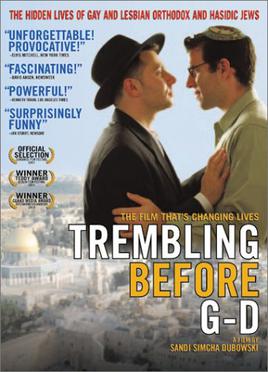Music
- "Fear and Trembling", a song from the album Go Farther in Lightness by the Australian band Gang of Youths
Fear and Trembling is a common phrase in the Hebrew and Christian Bible. As a title, it may refer to:
Terror(s) or The Terror may refer to:
Earth is the third planet from the Sun and the only inhabitable planet.
Fargo usually refers to:
Fear of the Dark may refer to:

Risa Wataya is a female Japanese novelist from Kyoto. Her short novel Keritai senaka won the Akutagawa Prize and has sold more than a million copies. Wataya has also won the Bungei Prize and the Kenzaburo Oe Prize. Her work has been translated into German, Italian, French, Thai, Korean, and English.

Baroness Fabienne Claire Nothomb, better known by her pen name Amélie Nothomb, is a Belgian Francophone novelist. Part of her childhood was spent in Asia.
A tremor is an involuntary rhythmic shaking of one or more body parts.

Fear and Trembling is a 2003 French film based on the novel of the same name by Amélie Nothomb. The film was written and directed by Alain Corneau and stars Sylvie Testud.

Fear and Trembling is a fictional, satirical novel by Amélie Nothomb, first published in 1999, and translated into English by Adriana Hunter in 2001. It was awarded the Grand Prix du roman de l'Académie française that year. It was adapted into the film Fear and Trembling in 2003.
Fear is an emotion that arises from the perception of danger.
A gun is an object that propels a projectile through a hollow tube, primarily as weaponry.
Primal Fear may refer to:
Daredevil may refer to:
The 9th Chicago Film Critics Association Awards, given on 10 March 1997, honored the finest achievements in 1996 filmmaking.

Trembling Before G-d is a 2001 American documentary film about gay and lesbian Orthodox Jews trying to reconcile their sexuality with their faith. It was directed by Sandi Simcha DuBowski, an American who wanted to compare Orthodox Jewish attitudes to homosexuality with his own upbringing as a gay Conservative Jew.
The Legacy may refer to:

Sylvie Testud is a French actress whose film career began in 1991. She won the César Award for Most Promising Actress for Murderous Maids (2000), the César Award for Best Actress for Fear and Trembling (2003), and the European Film Award for Best Actress for Lourdes (2009). Her other film roles include Beyond Silence (1996), La Vie en Rose (2007), and French Women (2014).
Journey into Fear may refer to:
"Fear and Trembling" is the fourth episode of the second season of the FX anthology series Fargo, and the fourteenth episode of the series overall. It was written by Steve Blackman and directed by Michael Uppendahl.
Craig Wrobleski is a Canadian cinematographer, best known for his work on the television series Fargo, Legion and The Umbrella Academy.